|
|
 |
| < Back 1 2 3 4 5 6 7 8 9 10 11 12 13 14 15 16 17 18 19 20 21 22 23 24 25 26 27 28 29 Next > |
|

 1964–The Beatles appear live on CBS-TV’s The Ed Sullivan Show. Before an audience of 728 screaming fans, The Beatles perform three songs at the beginning of the program: All My Loving, Till There Was You, and She Loves You. During the second half, on another stage set, they perform I Saw Her Standing There and I Want to Hold Your Hand. Watching The Beatles that night were 73 million Americans, the largest U.S. television audience for any one show up to that time. That afternoon The Beatles taped their third appearance on the show, for broadcast by Sullivan on February 23rd (after The Beatles had returned to England). The performance was taped before a different live studio audience, with The Beatles performing Twist and Shout, Please Please Me, and I Want to Hold Your Hand. 1964–The Beatles appear live on CBS-TV’s The Ed Sullivan Show. Before an audience of 728 screaming fans, The Beatles perform three songs at the beginning of the program: All My Loving, Till There Was You, and She Loves You. During the second half, on another stage set, they perform I Saw Her Standing There and I Want to Hold Your Hand. Watching The Beatles that night were 73 million Americans, the largest U.S. television audience for any one show up to that time. That afternoon The Beatles taped their third appearance on the show, for broadcast by Sullivan on February 23rd (after The Beatles had returned to England). The performance was taped before a different live studio audience, with The Beatles performing Twist and Shout, Please Please Me, and I Want to Hold Your Hand.



|
 |
|
474–Zeno is crowned as co-Emperor of the Byzantine Empire.
951–The Northern Han Kingdom is founded by Liu Chong in present-day Shanxi.
967–Syrian ruler, Sayf al-Dawla, dies in Aleppo, Syria, at age 50. Sayf al-Dawla's final years were marked by military defeats, his own growing disability as a result of disease, and a decline in his authority that led to revolts.
1060–Pope Honorius II is born Lamberto Scannabecchi in Fiagnano, Papal States, Holy Roman Empire.
1135–Emperor Taizong of Jin dies at Mingde Palace, at age 59. His descendants were massacred by Digunai (Prince of Hailing), the fourth ruler of the Jin dynasty, as a political move to eliminate possible contenders to the throne.
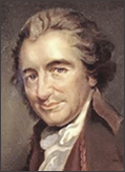 1313–Infanta Maria of Portugal is born in Portugal. 1313–Infanta Maria of Portugal is born in Portugal.
1555–Bishop of Gloucester John Hooper is burned at the stake for heresy during the reign of Queen Mary I.
1609–Frederick III of Denmark dies in Copenhagen Castle, Copenhagen, Denmark, at age 60.
1621–Gregory XV becomes Pope, the last Pope elected by acclamation.
1640–Ottoman sultan, Murad IV, dies of cirrhosis in Constantinople, Ottoman Empire, at age 27.
1654–The Capture of Fort Rocher takes place during the Anglo-Spanish War.
1670–Frederick III of Denmark dies at Copenhagen Castle in Copenhagen, Denmark, at age 60.
1737–American revolutionary, Thomas Paine, is born in Thetford, Norfolk, England. He was a political essayist who wrote Common Sense and The American Crisis. As the author of these two highly influential pamphlets at the start of the American Revolution, he inspired the Patriots to declare independence from Britain in 1776. He later wrote The Age of Reason, in which he advocated deism, promoted reason and freethinking, and argued against institutionalized religion in general and Christian doctrine in particular.
1763–Louis I, Grand Duke of Baden, is born in Karlsruhe, Germany. Working together with architect, Friedrich Weinbrenner, Louis is responsible for most of the classical revival buildings in the city center and for building the pyramid.
1773–William Henry Harrison, ninth President of the United States, is born in Charles City, Virginia Colony.
1775–In regard to the American Revolutionary War, the British Parliament declares Massachusetts in rebellion.
1788–The Habsburg Empire joins the Russo-Turkish War in the Russian camp.
1822–Haiti invades the newly founded Dominican Republic.
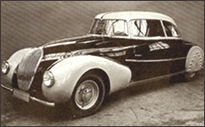 1825–John Quincy Adams is elected President by the House of Representatives, since no candidate receives a majority of electoral votes. 1825–John Quincy Adams is elected President by the House of Representatives, since no candidate receives a majority of electoral votes.
1846–German engineer, Wilhelm Maybach, designer of the Mercedes automobile, is born.
1849–The New Roman Republic is established.
1861–Jefferson Davis and Alexander Stephens are elected President and Vice President of the Confederate States of America.
1863–The fire extinguisher is patented by Alanson Crane.
1867–Nebraska becomes the 37th state in the United States of America.
1870–President Ulysses S. Grant signs a joint resolution of Congress establishing the U.S. Weather Bureau.
1873–Caroline Augusta of Bavaria dies in Vienna, Austria-Hungary, at age 81.
 1874–Poet, Amy (Lawrence) Lowell, is born in Brookline, Massachusetts, the daughter of a prominent Boston family: one brother became president of Harvard University and another was a distinguished astronomer. She wrote her first serious poem at age 28, after seeing a performance by the actress, Eleanora Duse. She was a large, outspoken woman who liked cigars, dogs, and detective stories. She was intrigued by the Imagist movement in poetry. Ezra Pound referred to her followers as "Amygists." 1874–Poet, Amy (Lawrence) Lowell, is born in Brookline, Massachusetts, the daughter of a prominent Boston family: one brother became president of Harvard University and another was a distinguished astronomer. She wrote her first serious poem at age 28, after seeing a performance by the actress, Eleanora Duse. She was a large, outspoken woman who liked cigars, dogs, and detective stories. She was intrigued by the Imagist movement in poetry. Ezra Pound referred to her followers as "Amygists."
1881–Russian novelist, Fyodor Dostoyevsky, dies from a pulmonary hemorrhage in Saint Petersburg, Russian Empire, at age 59. Many literary critics rated him as one of the greatest and most prominent psychologists in world literature.
1885–The first Japanese arrive in Hawaii.
1889–President Grover Cleveland signs a bill elevating the U.S. Department of Agriculture to a Cabinet-level agency.
1891–Actor, Ronald Ronald (Charles) Colman, is born in Richmond, Surrey, England. He became a major star and romantic idol of the silent cinema, then made a successful transition to sound with his first talking feature, Bulldog Drummond in 1929. He also appeared in the films Raffles, Arrowsmith, A Tale of Two Cities, Lost Horizon, Random Harvest, Kismet, A Double Life, Around the World in Eighty Days, and The Story of Mankind.
 1894–Hershey's Chocolate Company is founded as a subsidiary of Milton S. Hershey's Lancaster Caramel Company. 1894–Hershey's Chocolate Company is founded as a subsidiary of Milton S. Hershey's Lancaster Caramel Company.
1894–Photographer and journalist, Maxime Du Camp, dies in Paris, France, at age 72. In 1851, Du Camp became a founder of the Revue de Paris (suppressed in 1858), and a frequent contributor to the Revue des deux mondes. His travel books were among the first to be illustrated with photographs. In 1853, he became an officer of the Legion of Honour.
1895–The volleyball is invented by W.G. Morgan in Massachusetts.
1900–Dwight Davis establishes a tennis competition called The Davis Cup.
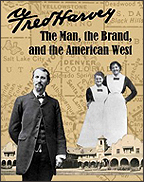 1901–Actor, (Waldo) Brian Donlevy, is born in Portadown, County Armagh, Ireland. He was best known for supporting roles as dangerous tough guys from the 1930s to the 1960s. He appeared in the films Beau Geste, Destry Rides Again, The Great MicGinty, Birth of the Blues, The Quatermass Xperiment, Never So Few, The Errand Boy, and How To Stuff a Wild Bikini. 1901–Actor, (Waldo) Brian Donlevy, is born in Portadown, County Armagh, Ireland. He was best known for supporting roles as dangerous tough guys from the 1930s to the 1960s. He appeared in the films Beau Geste, Destry Rides Again, The Great MicGinty, Birth of the Blues, The Quatermass Xperiment, Never So Few, The Errand Boy, and How To Stuff a Wild Bikini.
1901–Restaurateur, Fred Harvey, dies in Leavenworth, Kansas. He operated a chain of restaurants called the “Harvey House,” and a group of railroad dining cars and hotels. The restaurants were opened along the route of the Atchison, Topeka, and Santa Fe Railroad, and they were staffed by “Harvey Girls,” who came from all over the country to work for the widely-known restaurant chain.
1904–The Battle of Port Arthur concludes in the Russo-Japanese War.
1907–The Mud March takes place. It is the first large procession organised by the National Union of Women's Suffrage Societies (NUWSS).
1909–Singer, dancer and actress, Carmen Miranda, is born Maria do Carmo Miranda da Cunha in Marco de Canaveses, Portugal. In 1940, she made her first Hollywood film, Down Argentine Way, and her fruit-filled hat, exotic clothing, and Latin accent became her trademark. She also appeared in the films That Night in Rio, Week-End in Havana, Springtime in the Rockies, Four Jills in a Jeep, and Copacabana.
1909–Dean Rusk, U.S. Secretary of State (1961-1969), is born in Cherokee County, Georgia. He served under Presidents John F. Kennedy and Lyndon B. Johnson.
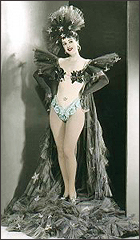 1911–Burlesque performer-stripper, Gypsy Rose Lee, is born Rose Louise Hovick in Seattle, Washington. She appeared in the films Stage Door Canteen, Screaming Mimi, The Stripper, and The Trouble with Angels. Her story is told in the stage production and film Gypsy. 1911–Burlesque performer-stripper, Gypsy Rose Lee, is born Rose Louise Hovick in Seattle, Washington. She appeared in the films Stage Door Canteen, Screaming Mimi, The Stripper, and The Trouble with Angels. Her story is told in the stage production and film Gypsy.
1913–A group of meteors is visible across much of the eastern seaboard of North and South America, leading astronomers to conclude that the source was a small, short-lived natural satellite of the Earth.
1914–Country singer, Ernest (Dale) Tubb, is born in Crisp, Texas. He was one of the pioneers of country music. Tubb joined the Grand Ole Opry in February 1943, and put together his band, the Texas Troubadours. His hits include Walking the Floor Over You, I’ll Step Aside, I Love You Because, (Remember Me) I’m the One Who Loves You, The Yellow Rose of Texas, and What Am I Living For.
1920–Under the terms of the Svalbard Treaty, international diplomacy recognizes Norwegian sovereignty over Arctic archipelago Svalbard, and designates it as demilitarized.
1922–Brazil becomes a member of the Berne Convention copyright treaty.
1922–Actress, Kathryn Grayson, is born Zelma Kathryn Elisabeth Hedrick in Winston-Salem, North Carolina. She appeared in the films Andy Hardy's Private Secretary, Thousands Cheer, Anchors Aweigh, Till the Clouds Roll By, The Kissing Bandit, Show Boat, Lovely to Look At, The Desert Song, and Kiss Me Kate.
1923–Writer and playwright, Brendan Behan, is born in Dublin, Ireland, into a working-class family: his father was a Republican activist and his uncle wrote the Irish national anthem. Behan was arrested for activities connected to the IRA, and sentenced to an English borstal, or reform school; an experience he later recounted in his autobiographical novel, Borstal Boy. His first play, The Quare Fellow, is set in a prison. It was rejected by both the Abbey and the Gate theaters before being staged at the experimental Pike Theater to great acclaim.
1925–Billy Williamson, of Bill Haley & His Comets, is born William F. Williamson in Conshohocken, Pennsylvania. In 1956, he appeared in the rock and roll movies Rock Around the Clock and Don't Knock the Rock.
1926–Teaching the Theory of Evolution is outlawed in Atlanta, Georgia, schools.
1928–News anchorman, Roger Mudd, is born in Washington, D.C. Mudd was weekend and weekday substitute anchor for the CBS Evening News, the co-anchor of the weekday NBC Nightly News, and host of the NBC-TV program Meet the Press.
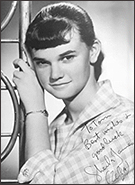 1933–Actress, Ronnie Claire Edwards, is born in Oklahoma City, Oklahoma. She is best known for the role of Corabeth Walton Godsey on the TV series The Waltons. She appeared in the films Five Days from Home, Getting Wasted, Perfect, Nobody’s Fool, The Dead Pool, and 8 Seconds. 1933–Actress, Ronnie Claire Edwards, is born in Oklahoma City, Oklahoma. She is best known for the role of Corabeth Walton Godsey on the TV series The Waltons. She appeared in the films Five Days from Home, Getting Wasted, Perfect, Nobody’s Fool, The Dead Pool, and 8 Seconds.
1934–The Balkan Entente is formed.
1939–Songwriter, Barry Mann, is born Barry Imberman in Brooklyn, New York. He and his wife, Cynthia Weill, wrote the pop classics Saturday Night at the Movies, Blame It on the Bossa Nova, Looking Through the Eyes of Love, We’ve Gotta Get Out of This Place, Uptown, You've Lost That Lovin' Feelin’, Kicks, On Broadway, Shape of Things to Come, and Somewhere Out There.
1941–Actress, Sheila James, is born Sheila Ann Kuehl in Tulsa, Oklahoma. She is best known for the role of the teenage genius, Zelda Gilroy, on the TV series The Loves of Dobie Gillis. After leaving the acting profession in the early 1970s, Kuehl switched to a career in law, and then, politics. Kuehl was elected to the California State Assembly in 1994, becoming the first openly gay person elected to the California legislature.
1942–In World War II, top United States military leaders hold their first formal meeting to discuss American military strategy.
1942–Year-round Daylight saving time is re-instated in the United States as a wartime measure to help conserve energy resources.
1942–Soap rationing begins in Great Britain.
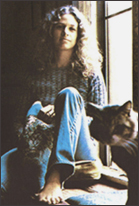 1942–Carole King, singer-songwriter and partner of Gerry Goffin, is born Carol Joan Klein in Brooklyn, New York. The songwriting team wrote some of the most popular songs in the 1950s and 1960s. Their hits include Will You Love Me Tomorrow, Chains, The Loco-motion, Half Way to Paradise, Take Good Care of My Baby, Up on the Roof, I’m Into Something Good, Pleasant Valley Sunday, and (You Make Me Feel Like) A Natural Woman. Singer-songwriter, Neil Sedaka, who dated King when he was still in high school, had a hit in 1959 with Oh! Carol, which was written about her. Carole King went on to become a solo artist, recording one of the longest-charting albums of all time, Tapestry. Her hits include It Might As Well Rain Until September, It’s Too Late, So Far Away, You’ve Got a Friend, Sweet Seasons, Jazzman, and One Fine Day. King performed the soundtrack music for the film Murphy’s Romance. 1942–Carole King, singer-songwriter and partner of Gerry Goffin, is born Carol Joan Klein in Brooklyn, New York. The songwriting team wrote some of the most popular songs in the 1950s and 1960s. Their hits include Will You Love Me Tomorrow, Chains, The Loco-motion, Half Way to Paradise, Take Good Care of My Baby, Up on the Roof, I’m Into Something Good, Pleasant Valley Sunday, and (You Make Me Feel Like) A Natural Woman. Singer-songwriter, Neil Sedaka, who dated King when he was still in high school, had a hit in 1959 with Oh! Carol, which was written about her. Carole King went on to become a solo artist, recording one of the longest-charting albums of all time, Tapestry. Her hits include It Might As Well Rain Until September, It’s Too Late, So Far Away, You’ve Got a Friend, Sweet Seasons, Jazzman, and One Fine Day. King performed the soundtrack music for the film Murphy’s Romance.
1943–President Franklin D. Roosevelt orders a minimal 48-hour work week in the war industry.
1943–The southwest Pacific island of Guadalcanal is liberated by American forces, as the U.S. defeats Japan.
1943–Singer, Barbara Lewis, is born in Salem, Michigan. She had hits with Hello Stranger, Baby I’m Yours, and Make Me Your Baby.
1943–Actor, Joe Pesci, is born Joseph Frank Pesci in Newark, New Jersey. He appeared in the films Raging Bull, I’m Dancing as Fast as I Can, Easy Money, Once Upon a Time in America, Goodfellas, Home Alone, JFK, My Cousin Vinny, A Bronx Tale, With Honors, and Casino. He announced his retirement from acting in 1999, and since then has been seen only sporadically in films.
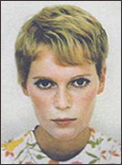 1944–Author, Alice (Malsenior) Walker, is born in Putnam County, Georgia. She wrote the critically acclaimed novel, The Color Purple, for which she won the National Book Award and the Pulitzer Prize for Fiction. The Color Purple was made into a highly acclaimed film in 1985. 1944–Author, Alice (Malsenior) Walker, is born in Putnam County, Georgia. She wrote the critically acclaimed novel, The Color Purple, for which she won the National Book Award and the Pulitzer Prize for Fiction. The Color Purple was made into a highly acclaimed film in 1985.
1945–In the Battle of the Atlantic, the HMS Venturer sinks U-864 off the coast of Fedje, Norway, in a rare instance of submarine-to-submarine combat.
1945–A force of Allied aircraft unsuccessfully attack a German destroyer in Fordefjorden, Norway.
1945–Actress, Mia Farrow, is born María de Lourdes Villiers Farrow in Los Angeles, California. She co-starred as Allison MacKenzie on the popular night time soap opera Peyton Place for 263 episodes. In the late 1960s, Farrow spent time with The Beatles and Donovan in Rishikesh, India, studying meditation with Maharishi Mahesh Yogi. She appeared in the films Secret Ceremony, Rosemary’s Baby, John and Mary, The Great Gatsby, A Wedding, Broadway Danny Rose, The Purple Rose of Cairo, Hannah and Her Sisters, Radio Days, September, Crimes and Misdemeanors, Alice, and Husbands and Wives. Daughter of actress, Margaret O'Sullivan, Farrow would marry a trio of powerful, famous men: singer Frank Sinatra, composer Andre Previn, and filmmaker Woody Allen.
1947–Major Harris, of The Delfonics, is born in Richmond, Virginia.
1949–Actress, Judith (Ellen) Light, is born in Trenton, New Jersey. Her breakthrough role was in the ABC daytime soap opera One Life to Live from 1977 to 1983. She later starred in the TV sitcom Who’s The Boss?
1950–Senator Joseph McCarthy accuses the United States Department of State of being filled with Communists.
 1951–During the Korean War, the two-day Geochang massacre begins as a battalion of the 11th Division of the South Korean Army kills 719 unarmed citizens in Geochang, in the South Gyeongsang district of South Korea. 1951–During the Korean War, the two-day Geochang massacre begins as a battalion of the 11th Division of the South Korean Army kills 719 unarmed citizens in Geochang, in the South Gyeongsang district of South Korea.
1951–Pianist, Eddy Duchin, dies of acute myelogenous leukemia in New York, New York, at age 41. His story is told in the film, The Eddy Duchin Story, starring Tyrone Power.
1953–The TV series, The Adventures of Superman, premieres in syndication.
1953–Actor, Ciarán Hinds, is born in Belfast, Northern Ireland. As a stage actor, Hinds has worked with the Royal Shakespeare Company, the Royal National Theatre in London, and six seasons with Glasgow Citizens' Theatre. He has appeared in the films Excalibur, Circle of Friends, Mary Reilly, The Weight of Water, The Sum of All Fears, Road to Perdition, Calendar Girls, Amazing Grace, Miss Pettigrew Lives for a Day, and Harry Potter and the Deathly Hallows: Parts 1 & 2.
1958–A report of the American Research Bureau cites Dick Clark's American Bandstand as the top-ranked daytime television program, drawing an average of 8,400,000 viewers per day.
1959–The R-7 Semyorka, the first intercontinental ballistic missile, becomes operational at Plesetsk, USSR.
1963–Country singer, (James) Travis Tritt, is born in Marietta, Georgia. Tritt has charted more than 40 times on the “Hot Country Songs” charts, including five number ones and 15 additional “Top Ten” singles. Tritt's musical style is mainstream country with Southern rock influences. His hits include Help Me Hold On, Anymore, Can I Trust You with My Heart, and Foolish Pride.
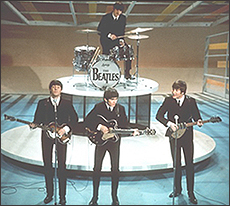 1964–The Beatles appear live on CBS-TV’s The Ed Sullivan Show. Before an audience of 728 screaming fans, The Beatles perform three songs at the beginning of the program: All My Loving, Till There Was You, and She Loves You. During the second half, on another stage set, they perform I Saw Her Standing There and I Want to Hold Your Hand. During the song Till There Was You, close-ups of each Beatle are shown, with their first names appearing on the screen. When John's picture and name are shown, there is an additional caption, "Sorry Girls, He's Married." Watching The Beatles that night were 73 million Americans, the largest U.S. television audience for any one show up to that time. That had to have been gratifying to the advertisers whose ads bracketed The Beatles' two sets: Aero Shave, Anacin, Kent, and Pillsbury. Earlier that morning, while The Beatles were rehearsing for their TV appearance, George Harrison was missing, suffering from a sore throat. To help the cameras set up for all four Beatles, Neil Aspinall stood in George's spot. That afternoon, with George back in full swing, The Beatles taped their third appearance on the show, for broadcast by Sullivan on February 23rd (after The Beatles had returned to England). The performance was taped before a different live studio audience, with The Beatles performing Twist and Shout, Please Please Me, and I Want to Hold Your Hand. It was surely somewhat bizarre for The Beatles, who had yet to appear on the Sullivan show, to hear their host introducing their "third performance" during the taping, with Sullivan saying, "All of us on the show are so darned sorry, and sincerely sorry, that this is the third and thus our last current show with The Beatles, because these youngsters from Liverpool, England, and their conduct over here, not only as fine professional singers but as a group of fine youngsters, will leave an imprint on everyone over here who's met them.” 1964–The Beatles appear live on CBS-TV’s The Ed Sullivan Show. Before an audience of 728 screaming fans, The Beatles perform three songs at the beginning of the program: All My Loving, Till There Was You, and She Loves You. During the second half, on another stage set, they perform I Saw Her Standing There and I Want to Hold Your Hand. During the song Till There Was You, close-ups of each Beatle are shown, with their first names appearing on the screen. When John's picture and name are shown, there is an additional caption, "Sorry Girls, He's Married." Watching The Beatles that night were 73 million Americans, the largest U.S. television audience for any one show up to that time. That had to have been gratifying to the advertisers whose ads bracketed The Beatles' two sets: Aero Shave, Anacin, Kent, and Pillsbury. Earlier that morning, while The Beatles were rehearsing for their TV appearance, George Harrison was missing, suffering from a sore throat. To help the cameras set up for all four Beatles, Neil Aspinall stood in George's spot. That afternoon, with George back in full swing, The Beatles taped their third appearance on the show, for broadcast by Sullivan on February 23rd (after The Beatles had returned to England). The performance was taped before a different live studio audience, with The Beatles performing Twist and Shout, Please Please Me, and I Want to Hold Your Hand. It was surely somewhat bizarre for The Beatles, who had yet to appear on the Sullivan show, to hear their host introducing their "third performance" during the taping, with Sullivan saying, "All of us on the show are so darned sorry, and sincerely sorry, that this is the third and thus our last current show with The Beatles, because these youngsters from Liverpool, England, and their conduct over here, not only as fine professional singers but as a group of fine youngsters, will leave an imprint on everyone over here who's met them.”
1964–The IX Winter Olympic Games close at Innsbruck, Austria.
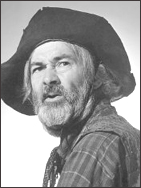 1965–The U.S. Marine Corps sends a MIM-23 Hawk missile battalion to South Vietnam, the first American troops in-country without an official advisory or training mission. 1965–The U.S. Marine Corps sends a MIM-23 Hawk missile battalion to South Vietnam, the first American troops in-country without an official advisory or training mission.
1966–Liza Minnelli brings her nightclub act to New York City with a show at The Persian Room in The Plaza Hotel.
1966–Entertainer, Sophie Tucker, dies of kidney failure in New York, New York, at age 79. She was one of the most popular entertainers in America during the first half of the 20th century and was widely known by the nickname "The Last of the Red Hot Mamas."
1969–First test flight of the Boeing 747 takes place, marking the beginning of the end of the “Golden Age of the Jet Set.”
1969–Western actor, Gabby Hayes, dies of cardiovascular disease in Burbank, California, at age 83. He was an American character actor, the most famous of Western-movie sidekicks of the 1930s and 1940s.
1971–Apollo 14 with its crew of three astronauts, returns to Earth after America's third lunar landing mission.
1971–Fans celebrate at the Cavern Club in Liverpool, England, in honor of the 10th anniversary of The Beatles’ debut there.
 1971–A 6.5 earthquake hits San Fernando, California. Sixty-five people are killed, 2,000 are injured, and property damage is estimated at $505 million. 1971–A 6.5 earthquake hits San Fernando, California. Sixty-five people are killed, 2,000 are injured, and property damage is estimated at $505 million.
1971–Satchel Paige is elected to the Baseball Hall of Fame.
1975–The Soyuz 17 Soviet spacecraft returns to Earth.
1975–The variety show, Cher, designed to take the place of The Sonny & Cher Comedy Hour, debuts on CBS-TV, with guests Elton John and Bette Midler.
1976–A chart topper: 50 Ways to Leave Your Lover by Paul Simon. The song is Simon's first #1 single since ending his 13-year partnership with Art Garfunkel in 1970.
1976–Oscar Charleston is elected to the Baseball Hall of Fame.
1976–Media producer and radio personality, Stu Burguiere, is born Steve Burguiere in Tarrytown, New York. He is the executive producer and head writer of The Glenn Beck Program on Premiere Networks. Burguiere also co-hosts The Pat & Stu Show with Pat Gray, a two-hour program available on the The Blaze TV channel.
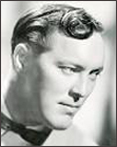 1976–Conductor-arranger, Percy Faith, dies of cancer in Encino, California, at age 67. His biggest hit was The Theme from A Summer Place, although he recorded dozens of what are called “Easy Listening” LPs. 1976–Conductor-arranger, Percy Faith, dies of cancer in Encino, California, at age 67. His biggest hit was The Theme from A Summer Place, although he recorded dozens of what are called “Easy Listening” LPs.
1978–The Budd Company unveils its first SPV-2000 self-propelled railcar in Philadelphia, Pennsylvania.
1981–Rock ‘n’ roller, Bill Haley, dies of a brain tumor in Harlingen, Texas, at age 56. He was one of the first white performers to play R&B and began working the roots of rock and roll in the early 1950s. In 1954, he and the Comets released their most famous song Rock Around The Clock.
1982–George Harrison presents UNICEF with a check for $9 million, 10 years after the fund-raising concert for Bangladesh. He is presented with the UNICEF award by Hugh Downes, the chairman of the U.S. committee for UNICEF. George makes this statement at a press conference: “It’s nice to know you can achieve these sort of things. Even though the concert was over 10 years ago and the public has probably forgotten about the problems of Bangladesh, the children still probably need help and the money will have significant impact.”
1986–Halley's Comet reaches its closest approach to the Sun, during its second visit to the solar system in the 20th century.
1991–Voters in Lithuania vote for independence.
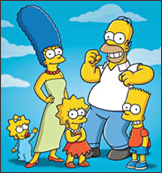 1991–Gospel singer, James Cleveland, dies of heart failure in Culver City, California, at age 59. Known as the “King of Gospel Music,” Cleveland was a driving force behind the creation of the modern gospel sound by incorporating traditional black gospel, modern soul, pop, and jazz in arrangements for mass choirs. 1991–Gospel singer, James Cleveland, dies of heart failure in Culver City, California, at age 59. Known as the “King of Gospel Music,” Cleveland was a driving force behind the creation of the modern gospel sound by incorporating traditional black gospel, modern soul, pop, and jazz in arrangements for mass choirs.
1995–Character actor, David Wayne, dies of lung cancer in Santa Monica, California, at age 81. He appeared in the films Adam’s Rib, Stella, How to Marry a Milllionaire, The Tender Trap, The Three Faces of Eve, and The Andromeda Strain.
1996–The Provisional Irish Republican Army declares the end to its 18-month ceasefire and explodes a large bomb at Canary Wharf in London, England.
1996–Copernicium is discovered. It is a chemical element with the symbol Cn and atomic number 112. It is an extremely radioactive, synthetic element that can only be created in a laboratory.
1997–The FOX-TV cartoon series, The Simpsons, airs its 167th episode, becoming the longest-running animated series in cartoon history.
2001–After being booted from the "reunion" lineup of country-rock group, The Eagles, guitarist and original member, Don Felder, files a lawsuit against them.
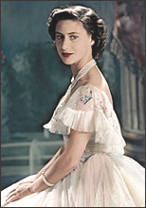 2002–Princess Margaret, member of the British Royal Family, dies from a series of strokes in London, England, at age 71. She was the younger sister of Queen Elizabeth II. 2002–Princess Margaret, member of the British Royal Family, dies from a series of strokes in London, England, at age 71. She was the younger sister of Queen Elizabeth II.
2009–Playwright and screenwriter, Robert Woodruff Anderson, dies of pneumonia in New York, New York, at age 91. He had been suffering from Alzheimer's disease for seven years. His works include Tea and Sympathy, All Summer Long-Silent Night Lonely Night, I Never Sang for My Father, and Absolute Strangers. He also wrote the screenplays for Until They Sail, The Nun's Story, and The Sand Pebbles.
2010–The southern entrance to the Salang Tunnel, north of Kabul, Afghanistan, is buried by a series of at least 36 avalanches, following a freak storm in the Hindu Kush Mountains. Thousands of people are trapped in the tunnel, numerous vehicles are pushed down the mountainside, and hundreds of cars are buried in snow.
2010–Toymaker, Walter Frederick Morrison, dies at age 90. He invented the Frisbee.
2013–A 6.9 earthquake strikes southwest Colombia, injuring at least 15 people and causing major disruption to the region.
2016–Warner/Chappell Music agrees to return $14 million collected in copyright fees for the song Happy Birthday to You, which a federal judge ruled in September belongs in the public domain.
2016–Clashes break out in the Mong Kok district of Hong Kong, as police try to close down illegal food vendors.
2016–Two passenger trains collide in Bad Aibling, Bavaria, Germany. At least nine people are killed, 50 others are seriously injured, and two are assumed missing.
2017–The International Committee of the Red Cross announces it will be temporarily halting some of its operations in Afghanistan, after gunmen kill six of its workers.
2017–A fire at the Flamanville Nuclear Power Plant in northwest France causes an explosion in a "non-nuclear" part of the station. One reactor is taken offline and five people are affected by fumes.
2018–The U.S. Government runs out of funding for the second time in the year, prompting another government shutdown. A comprehensive budget deal is later passed by Congress in the early hours of the morning, and is signed into law by President Trump.
2018–The XXIII Winter Olympics opening ceremony is performed in Pyeongchang County in South Korea.
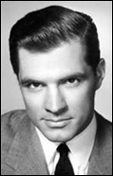 2018–A 6.0 earthquake strikes off the coast of the Mexican state of Jalisco, prompting evacuations in the tourist resort of Puerto Vallarta. The quake is felt in the country's second-largest metropolitan area of Guadalajara. 2018–A 6.0 earthquake strikes off the coast of the Mexican state of Jalisco, prompting evacuations in the tourist resort of Puerto Vallarta. The quake is felt in the country's second-largest metropolitan area of Guadalajara.
2018–Actor, Reg E. Cathey, dies in New York, New York, at age 59. He is best known for the role of Freddy Hayes in the series House of Cards. He appeared in the films Funny Farm, Crossing Delancey, Born on the Fourth of July, Loose Cannons, Quick Change, Clean Slate, The Mask, Clear and Present Danger, Airheads, American Psycho, and Fantastic Four.
2018–Actor, John Gavin, dies of pneumonia in Beverly Hills, California, at age 86. He had been battling leukemia for some time. He appeared in the films Four Girls in Town, Imitation of Life, A Breath of Scandal, Psycho, Spartacus, Midnight Lace, Romanoff and Juliet, Tammy Tell Me True, Back Street, Thoroughly Modern Millie, The Madwoman of Chaillot, Pussycat Pussycat I Love You, and History of the World, Part I.
2018–Craig MacGregor, bass player for Foghat, dies of lung cancer at age 68.
PHOTOS TOP TO BOTTOM: Thomas Paine; an early Mercedes automobile; Amy Lowell; an early Hershey's candy bar; Fred Harvey book cover; Gypsy Rose Lee; Sheila James; Carole King; Mia Farrow; George Reeves as Superman; The Beatles first appearance on The Ed Sullivan Show; Gabby Hayes; Cher on the cover of TV Guide; Bill Haley; The Simpsons; Princess Margaret; and John Gavin.
|
|
| < Back 1 2 3 4 5 6 7 8 9 10 11 12 13 14 15 16 17 18 19 20 21 22 23 24 25 26 27 28 29 Next > |
|
|